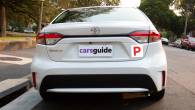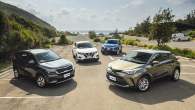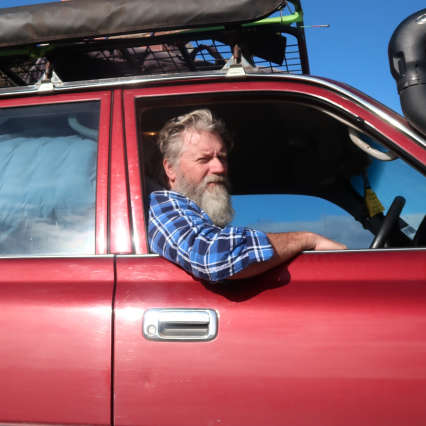Q: Are Kia and Hyundai the same company?
A: The short answer is yes; both South Korean-based companies are part of the broader Hyundai Motor Group family which, of course, includes a lot more than just car-making.
In fact, with 463 offices in 43 countries and around 300,000 employees, the group is actively working as a partner on transport and mobility concepts in varied fields including road, personal and even aviation mobility.
The merger came in the late 1990s when Kia declared bankruptcy at the height of the Asian financial crisis. At this point, Hyundai stepped in and purchased a controlling interest in Kia Motors and by 1998, the deal was done and the ink dry.
Since then, the Kia brand has joined Hyundai Motor Company subsidiaries including brands such as Genesis and the Ioniq electric vehicle sub-brand.
So, does Hyundai own Kia outright? No, the former owns about a third of the latter, but still enough to call the shots.
That being the case, who owns Hyundai, then? Hyundai is a publicly listed company on the South Korean stock exchange so, technically, it’s owned by its shareholders. As a result, that’s who owns Kia, too.
And is Hyundai Korean? Yes, well, South Korean to be precise, but the Hyundai origin country is the same as Kia’s birthplace.
.jpg)
In this country, Kia and Hyundai are registered as separate brands and trade out of stand-alone dealerships. But given that, in Australia and other outposts, are Hyundai and Kia the same company?
Yep. But even if the two companies are now family, it’s still the case that Hyundai makes Hyundais and it’s Kia who makes Kia cars.
Since the Hyundai buy-out, the two brands have been sharing a lot of technology, including whole vehicle platforms.
For many years, both brands have shared engine and driveline packages and these days, it’s whole platforms with, for instance, the Kia EV6 and Hyundai Ioniq 5 sharing the same basic underpinnings, even if the car as a whole appeals to different buyer groups.
In the Kia vs Hyundai debate, it’s often thought that Kia is the junior partner. In fact, Kia has been around longer than Hyundai, being established in 1944 as a maker of steel tubing and bicycle parts.
.jpg)
The Hyundai origin story is a bit newer with the automotive part of the brand set up in 1967 to help put South Korea on wheels.
Of course, the fuller Hyundai history includes the fact that the brand was first formed in 1947 (shortly after the formation of modern South Korea) and made its mark mobilising the country via the building of freeways and operating a huge shipyard. The Motor Company part was formed and hived off in 1967.
Although there’s lots of technology sharing these days, the two companies still operate as stand-alone brands, including their factories.
So, where are Hyundai made? The main factory is in the industrial south of South Korea in Ulsan. But the brand also has plants in Alabama and Mexico to supply its North American markets.
And where are Kias made? All over the place, actually. The company has four production plants in South Korea (the Kia country of origin) and others in countries including China, India, Japan, Mexico, Slovakia, USA and Viet Nam.
.jpg)
And what about those made for us? Where are Hyundai cars made for Australia?
The majority of them are built in South Korea, but the sporty i30N models are made in Slovakia.
The same goes for Kia where the main Australian Kia manufacturer is the factory in South Korea.
The future looks extremely bright for both Hyundai and Kia. Hyundai is already the world’s third largest carmaker behind Volkswagen Group and Toyota, and Kia is South Korea’s second-biggest car brand behind Hyundai.
Both brands have also embraced electrification early and have great reputations in Australia as a result of generally good product and an industry-leading factory warranty.



.jpg)


 copy.jpg)
.jpg)

.jpg)
.jpg)
.jpg)
.jpg)
.jpg)

.jpg)


.jpg)




.jpg)



.jpg)


Comments